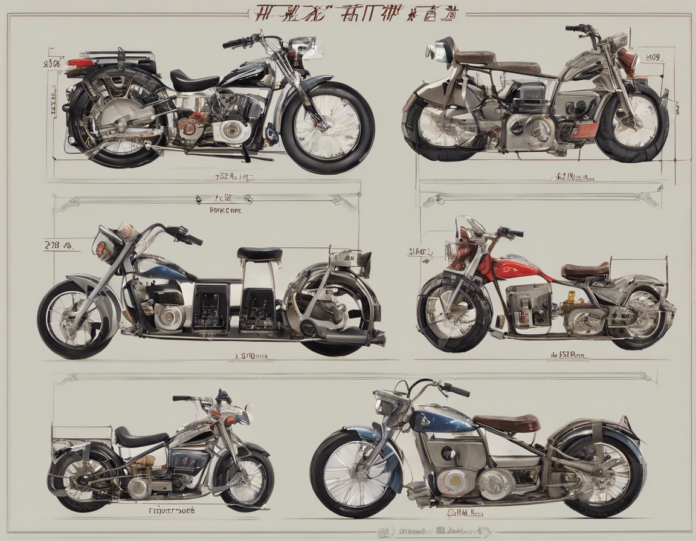With the rise in demand for water motors for various applications such as irrigation, industrial use, or household water supply, it is crucial to understand the different factors affecting water motor prices. In this comprehensive guide, we will explore the various aspects that influence the cost of water motors, helping you make an informed decision when purchasing one.
Understanding Water Motors
Before delving into the pricing factors, it is essential to have a clear understanding of what water motors are and how they function. Water motors, also known as water pumps or water circulators, are mechanical devices that are used to move water from one place to another. They are vital for maintaining proper water circulation in various systems, such as agricultural fields, commercial buildings, and residential properties.
Water motors typically work by converting mechanical energy into hydraulic energy, which in turn helps in moving water efficiently. They come in different types, including centrifugal pumps, submersible pumps, and jet pumps, each designed for specific applications and water sources.
Factors Affecting Water Motor Prices
Several factors influence the pricing of water motors. Understanding these factors will give you an insight into why prices may vary between different models and brands. Here are some key aspects to consider:
1. Motor Type and Capacity
The type and capacity of the motor play a significant role in determining the price. Larger motors with higher horsepower will generally be more expensive than smaller ones. Additionally, specialized motors designed for specific applications, such as high-pressure pumps for industrial use, may come at a premium.
2. Brand and Quality
The brand reputation and the quality of materials used in the construction of the water motor can also impact the pricing. Well-established brands known for their reliability and durability may charge a higher price compared to lesser-known brands.
3. Efficiency and Performance
Water motors that offer higher efficiency and better performance, such as energy-efficient models with low power consumption, may come at a higher cost upfront. However, investing in a motor with superior efficiency can result in long-term savings on energy bills.
4. Installation and Maintenance
The cost of installation and maintenance services can also influence the overall price of a water motor. Some manufacturers offer installation services or maintenance packages, which may be reflected in the price of the motor.
5. Additional Features
Water motors with additional features such as built-in controls, variable speed drives, or smart technology for remote monitoring and control may have a higher price tag. These features can enhance the functionality and convenience of the motor but come at an added cost.
6. Warranty and Support
The length and coverage of the warranty offered by the manufacturer can affect the price of the water motor. Motors with longer warranties and comprehensive support services may have a higher upfront cost but can provide peace of mind in terms of after-sales service.
Tips for Choosing the Right Water Motor
When selecting a water motor for your specific needs, it is essential to consider the following tips to ensure you make the right choice:
- Assess your water requirements to determine the appropriate motor capacity.
- Research different brands and compare prices to find the best value for your budget.
- Consider energy efficiency ratings to lower operating costs in the long run.
- Consult with experts or professionals in water motor systems for guidance on the most suitable model.
- Read customer reviews and testimonials to gauge the performance and reliability of the motor.
By following these tips, you can make a well-informed decision when purchasing a water motor that meets your requirements and budget.
Frequently Asked Questions (FAQs)
1. What is the average cost of a water motor?
The average cost of a water motor can vary widely depending on factors such as motor type, capacity, brand, and features. In general, prices can range from $200 to $2000 or more for residential water motors, while commercial and industrial-grade motors may cost $1000 to $10,000 or higher.
2. How do I determine the right motor capacity for my water system?
To determine the appropriate motor capacity for your water system, calculate the total head (vertical height) and flow rate (volume of water) required. Consult with a water system expert or use online calculators to help you size the motor correctly.
3. Are there any energy-efficient water motors available?
Yes, many manufacturers offer energy-efficient water motors that are designed to minimize power consumption while maximizing performance. Look for motors with Energy Star ratings or high-efficiency motor labels to ensure you choose a model that saves energy.
4. Can I install a water motor myself, or do I need professional help?
While some water motors come with DIY installation instructions, it is recommended to hire a professional plumber or technician for proper installation. Improper installation can lead to performance issues or damage to the motor, so it is best to seek professional assistance.
5. What maintenance tasks are required for water motors?
Regular maintenance is essential to ensure the longevity and efficiency of water motors. Tasks such as cleaning the pump, checking for leaks, replacing filters, and lubricating moving parts should be done periodically as per the manufacturer’s recommendations.
6. Are there any government rebates or incentives for purchasing energy-efficient water motors?
Some regions or utility companies offer rebates or incentive programs for purchasing energy-efficient appliances, including water motors. Check with your local authorities or energy providers to see if you are eligible for any financial incentives when upgrading to an energy-efficient water motor.
Conclusion
In conclusion, understanding the factors influencing water motor prices and following the tips provided in this guide can help you navigate the market and choose the right water motor for your specific needs. By considering aspects such as motor type, capacity, brand reputation, efficiency, and additional features, you can make a well-informed decision that aligns with your budget and requirements. Remember to conduct thorough research, seek expert advice when needed, and prioritize quality and performance when investing in a water motor for your water system.












